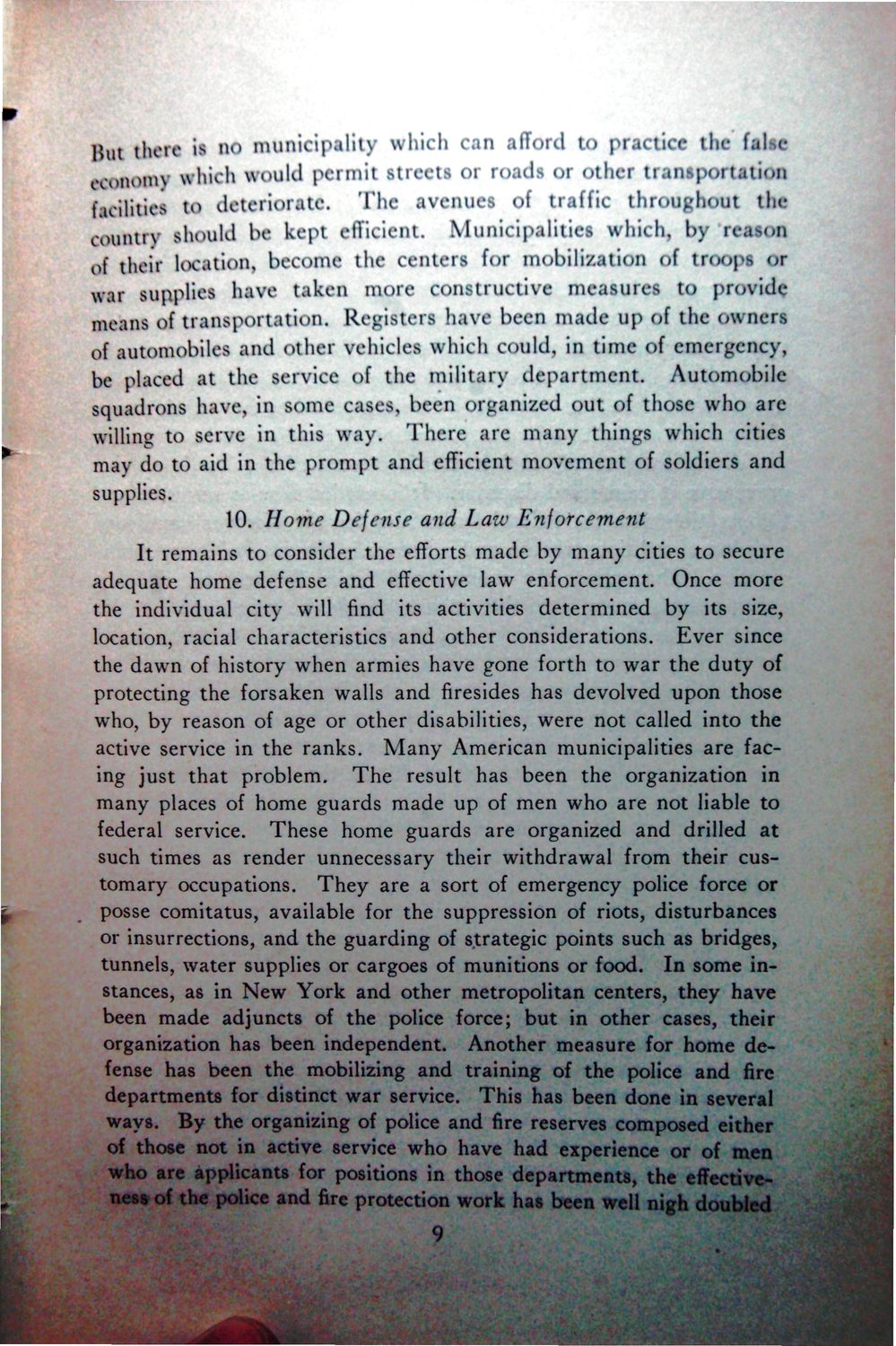| |
| |
Caption: War Publications - WWI Compilation 1923 - Article 3
This is a reduced-resolution page image for fast online browsing.

EXTRACTED TEXT FROM PAGE:
But there is no municipality which can afford to practice the false economy which would permit streets or roads or other transportation facilities to deteriorate. The avenues of traffic throughout the country should be kept efficient. Municipalities which, by reason of their location, become the centers for mobilisation of troops or war supplies have taken more constructive measures to provide means of transportation. Registers have been made up of the owners of automobiles and other vehicles which could, in time of emergency, be placed at the service of the military department. Automobile squadrons have, in some cases, been organized out of those who are willing to serve in this way. There are many things which cities may do to aid in the prompt and efficient movement of soldiers and supplies. 10. Home Defense and Law E?iforcement It remains to consider the efforts made by many cities to secure adequate home defense and effective law enforcement. Once more the individual city will find its activities determined by its size, location, racial characteristics and other considerations. Ever since the dawn of history when armies have gone forth to war the duty of protecting the forsaken walls and firesides has devolved upon those who, by reason of age or other disabilities, were not called into the active service in the ranks. Many American municipalities are facing just that problem. The result has been the organization in many places of home guards made up of men who are not liable to federal service. These home guards are organized and drilled at such times as render unnecessary their withdrawal from their customary occupations. They are a sort of emergency police force or posse comitatus, available for the suppression of riots, disturbances or insurrections, and the guarding of strategic points such as bridges, tunnels, water supplies or cargoes of munitions or food. In some instances, as in New York and other metropolitan centers, they have been made adjuncts of the police force; but in other cases, their organization has been independent. Another measure for home defense has been the mobilizing and training of the police and fire departments for distinct war service. This has been done in several ways. By the organizing of police and fire reserves composed either of those not in active service who have had experience or of men who are applicants for positions in those departments, the effectiveness of the police and fire protection work has been well nicrh dnuhlirl
| |